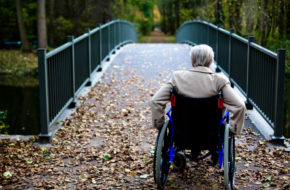“Adult children want their parents to thrive,” explains Melissa Stanton, the marketing and sales manager at Cumberland Crossings, a Diakon Senior Living community in Carlisle, PA. “There are certain changes that are expected as a loved one ages. The pace of life might slow. Self-care may take on new dimensions. But there are some changes that indicate your loved one needs extra help.”
Melissa shares some helpful information in this post and answers the difficult question of how do you know when it’s the right time to broach the topic of senior care?
A good time is when you see your loved one struggling to complete essential daily activities such as dressing, bathing, managing meals and medication. Or when they are showing signs of memory loss – forgetting appointments or having trouble remembering common words. If you see their personal hygiene or the cleanliness of their home declining, or they are showing uncharacteristic behaviors/moods. If YOU or another caregiver is experiencing burnout, it is time to talk about senior care.
Right now, may be the ideal time to talk to your parents about a transition plan, even if some of these signs are very mild. It may not seem like an easy conversation to have but having a plan in place can help everyone focus on enjoying the present!
Often, seniors express the desire to age in place. In many cases, this means a family member steps into a caregiving role. While this may be sustainable for a while, there is a strong chance of your loved one’s caregiver experiencing burnout. This could necessitate an added layer of help or a move into senior living. You know the baseline mood of your loved one. You know what kinds of behaviors are typical and which are concerning. If you’re noticing emotions and behaviors that are out of the normal range, this could be a sign your loved one needs some additional support.











